Ray Dalio- Success Principles
Ray Dalio (Raymond Thomas Dalio) is the founder and co-chief investment officer of Bridgewater Associates, a global leader in institutional portfolio management and the largest hedge fund in the world.
He is an American investor, who is one of the world’s most talked about and famous hedge fund managers. He left such a huge impact on investors’ minds, that people try to follow what he says and try to imitate what he does.
His Journey
Ray Dalio is regarded as one of the greatest innovators in the finance world, having popularized many commonly used practices, such as risk parity, currency overlay, portable alpha and global inflation-indexed bond management. He was born in New York City on August 8, 1949.
He completed an MBA from Harvard Business School in 1973. During his college days, he developed an inclination towards investing in the stock market and was continuously buying and selling stocks. Later he got attracted to commodities futures as they had low borrowing requirements at the time, and Dalio knew he could profit more handsomely than with simple stocks.
After his first year at Harvard, Dalio and his friends created the company that later became Bridgewater Associates. It started off as a small entity, and its goal was to trade commodities. Since they lacked experience, their venture yielded less profits. But he thrived hard to create the largest hedge fund ever. His trading on commodities caused investors on Wall Street to turn to commodities, which are typically more resilient and thrive during times of inflation.
Later he got married and started working on the New York Stock Exchange and traded commodities futures. In 1975, he started his wealth advisory firm known as the Bridgewater Associates, working out of his 2 bedroom apartment. The name Bridgewaters arose because he initially attempted to sell commodities from the US to other countries, and thus they were bridging the waters.
Later the company focused on consulting business which focused primarily on currencies and interest rates. The company started publishing research reports, focusing on the global trends and this led Dalio to his big break, where he signed McDonalds as its client. The firm started gaining popularity and grew big with new and bigger clients. Dalio often describes himself as a curious, independent thinker who was always enthusiastic and excited about visualising his goals. He strived to achieve ambitious things and learn from his failures.
Dalio says “In trading you have to be defensive and aggressive at the same time. If you are not aggressive, you are not going to make money and if you are not defensive, you are not going to keep money.”
Between 1979 and 1981 the economy was not looking good and markets at that time were very volatile. In March 1981, Dalio wrote a controversial observation predicting a bad depression and he was very confident about this.
He even asked his associates to scrutinise his observations and calculations to find any flaws, but they couldn’t find anything different. He even declared publicly that he was predicting a depression. Due to this prediction, he almost lost everything, and he mentioned that:
“The stock market began a big bull run and over the next 18 years the US economy enjoyed the greatest non-inflationary growth period in its history.” He said this time felt like “a series of blows to the head.”
This incident had a great impact on him, as he almost lost everything and had to dismiss all his employees as he couldn’t afford them. He had to borrow money from his dad, still he didn’t give up the idea of continuing his business and started interospecting and questioning himself as “how do i know i am right?” he had realized that he developed fear of being wrong, so he thought to change his way. He gradually gained new clients and grew his business and managed to build his company back to its level of success.
Principles for Investors
Though there could be many lessons that can be learnt from Ray Dalio’s life and his investment journey, still we tried compiling a few important lessons which can help every investor in their journey of investment and can be applied easily.
-
Diversify
– While diversifying the portfolio is something we all know about as the very first principles of investing, Dalio’s strategy for diversification was based on reality. He suggested that one should have a balanced portfolio that does well in different environments. In total he believed that it takes many uncorrelated investments to reduce the risk by some huge percentage.
-
Inflation Risk
– Dalio’s next principle is to balance your portfolio according to the inflation risk, since inflation impacts the financial market to great extent. And one should know how to optimize and modify the portfolio regardless of the inflammatory shifts. Since all asset classes have environmental biases, they tend to perform well in some environments and perform poorly in some other environments. So investors should consider the current economic environment and accordingly design the portfolio.
-
Sell the winners and Buy the losers
– Dalio advises to take profits on fully priced stocks, that is he believed not to continue holding a stock after substantial gain but rather sell them to reinvest the profits. Dalio firmly believes that the higher the price of an investment, the less likely the price will continue to climb.
-
Do not have any biases
– Bias on some particular stocks, who tend to hold on to positions are often wiped out than any other big reasons. Most people tend to be bullish or bearish while approaching the market. Hence biases often lead investors to take decisions not based on reality. So the best way to avoid bias is to diversify.
-
Learn what moves the interest rates
– Dalio recommends that one should not try to predict interest rates; rather, understand their structure and why they move. He says “It all comes down to interest rates. As an investor, all you’re doing is putting up a lump-sum payment for a future cash flow…. The big question is: When will the term structure of interest rates change? That’s the question to be worried about. He who lives by the crystal ball (in trying to forecast interest rates) will eat shattered glass.”
Life changing lessons from Ray Dalio
“There are two main drivers of asset class returns – inflation and growth.”… Ray Dalio
Dalio explained how inflation and growth affect the prices of asset class returns. He says “When growth is slower-than-expected, stocks go down. When inflation is higher-than-expected, bonds go down. When inflation is lower-than-expected, bonds go up.”
“The main reason I write the daily observations is because I want to know where I’m wrong.”
He explained that by writing his daily findings he can judge his mistakes. “So lots of times if somebody points something out it helps me, and I want to have a diversified bet of uncorrelated bets.”
“Demand is best measured in terms of spending.”
“Demand is best measured in terms of spending,” Dalio said in 2012 at the Council on Foreign Relation. “You know, I think in traditional economics, it’s a mistake to measure it in terms of the quantity of goods.”
“If you’re not failing, you’re not pushing your limits, and if you’re not pushing your limits, you’re not maximizing your potential.”
He once wrote that the challenges you face will test and strengthen you, so one should always keep pushing the limits and keep trying without the fear of failing.
“Listening to uninformed people is worse than having no answers at all.”
He wrote on his facebook that one should always try to find out who is responsible for whatever you are seeking to understand and then ask them.
“I don’t get caught up in the moment.”
Dalio so very clearly explained that he never gets caught up in a moment. He said “I think so many people are reactive … they see things in a short term way when they’re right up against it. If it didn’t happen in your life before, then you’re not paying attention, you don’t think it’s possible. But almost all important events never happen in your life before … Monetary system breaks down … the oil shock … didn’t happen before …
“When I’m looking at it, I think these things, kind of keep happening over and over again … and then I have this template … and these rules, if this happens, then that’s going to happen because it has all happened before.”
“Pain plus Reflection equals Progress”
Dalio said “Pain, when we are in the moment of pain, we tend not to reflect. But after that moment of pain, whenever anybody makes a mistake, about anything, it’s not just the market, it’s about life. There’s probably a message there.”
Dalio’s self-reflection on his painful past helped him to understand his own mistakes and taught him that every entity is perishable. Due to his erroneous decisions, Dalio almost lost his career, wealth, family, and friends. This incident taught him to reflect on his pain to gain progress.
“In order to be successful, you’re betting against the consensus, and you have to be right.”
Dalio said in an interview that “The consensus is built into the price. So because the consensus is built into the price, and assets price themselves in a way that they’re all competing, and they’re all of equal value in a certain sense. There’s a risk premium of equities over cash, and bonds will have that over whatever, but basically, they’re all priced that way.
“The average man “tends to buy high and sell low.”.
Ray Dalio in an interview once said that “The average man tends to be much more reactive if you look at the purchases and sales that they make. When something goes up, they’re more likely to buy it. They think that’s a good investment. They don’t know that a much more expensive investment is more likely to go down”. He added “That’s what they’re attracted to. They tend to buy high and sell low, and so an average man should not be playing this game in that way …”
“Work for yourself and don’t just do what others ask of you!”
He said that “If you aspire to become a businessman, entrepreneur, or leader, you cannot achieve it without listening to your heart and working for yourself.” When he was in his early years, he bought his first shares in the stock exchange. From a young age, Ray learned that he could get anything that he wanted by working for it.
“Organizing people to complement their strengths and compensate for their weaknesses is like conducting an orchestra. It can be magnificent if done well and terrible if done poorly.”.
Dalio explained it in very simple terms that it’s important to know how people act differently but it’s just as important to know ourselves so we can jointly create better teams, since people with different talents think differently.
Ray Dalio is one of the most influential figures in the world of finance and as an investment guru there is a lot that we can all learn from him. As the Chief Investment Officer (CIO) at Bridgewater Associates, he has $150 billion to invest wisely. This makes him a gem source of knowledge about investment. And there is humongous learning that one can take from his experiences and strategies, which he still continues to do so.
Many more learning and findings could be compiled and added as per the users request. Do suggest and also mention, on what topic you would like us to share.
Thanks !
Howdy!
If you’re here for the first time, let’s get introduced.
VRD Nation is India’s premier stock market training institute and we (Team VRD Nation) are passionate about teaching each and every aspect of investing and trading.
If you’re here for the first time, don’t forget to check out “Free Training” section where we have tons of free videos and articles to kick start your stock market journey.
Also, we got two awesome YouTube channels where you can continue the learning process.
Must-Read Articles
Ray Dalio- Success Principles
Ray Dalio (Raymond Thomas Dalio) is the founder and co-chief investment officer of Bridgewater Associates, a global leader in institutional portfolio management and the largest hedge fund in the world.
He is an American investor, who is one of the world’s most talked about and famous hedge fund managers. He left such a huge impact on investors’ minds, that people try to follow what he says and try to imitate what he does.
His Journey
Ray Dalio is regarded as one of the greatest innovators in the finance world, having popularized many commonly used practices, such as risk parity, currency overlay, portable alpha and global inflation-indexed bond management. He was born in New York City on August 8, 1949.
He completed an MBA from Harvard Business School in 1973. During his college days, he developed an inclination towards investing in the stock market and was continuously buying and selling stocks. Later he got attracted to commodities futures as they had low borrowing requirements at the time, and Dalio knew he could profit more handsomely than with simple stocks.
After his first year at Harvard, Dalio and his friends created the company that later became Bridgewater Associates. It started off as a small entity, and its goal was to trade commodities. Since they lacked experience, their venture yielded less profits. But he thrived hard to create the largest hedge fund ever. His trading on commodities caused investors on Wall Street to turn to commodities, which are typically more resilient and thrive during times of inflation.
Later he got married and started working on the New York Stock Exchange and traded commodities futures. In 1975, he started his wealth advisory firm known as the Bridgewater Associates, working out of his 2 bedroom apartment. The name Bridgewaters arose because he initially attempted to sell commodities from the US to other countries, and thus they were bridging the waters.
Later the company focused on consulting business which focused primarily on currencies and interest rates. The company started publishing research reports, focusing on the global trends and this led Dalio to his big break, where he signed McDonalds as its client. The firm started gaining popularity and grew big with new and bigger clients. Dalio often describes himself as a curious, independent thinker who was always enthusiastic and excited about visualising his goals. He strived to achieve ambitious things and learn from his failures.
Dalio says “In trading you have to be defensive and aggressive at the same time. If you are not aggressive, you are not going to make money and if you are not defensive, you are not going to keep money.”
Between 1979 and 1981 the economy was not looking good and markets at that time were very volatile. In March 1981, Dalio wrote a controversial observation predicting a bad depression and he was very confident about this.
He even asked his associates to scrutinise his observations and calculations to find any flaws, but they couldn’t find anything different. He even declared publicly that he was predicting a depression. Due to this prediction, he almost lost everything, and he mentioned that:
“The stock market began a big bull run and over the next 18 years the US economy enjoyed the greatest non-inflationary growth period in its history.” He said this time felt like “a series of blows to the head.”
This incident had a great impact on him, as he almost lost everything and had to dismiss all his employees as he couldn’t afford them. He had to borrow money from his dad, still he didn’t give up the idea of continuing his business and started interospecting and questioning himself as “how do i know i am right?” he had realized that he developed fear of being wrong, so he thought to change his way. He gradually gained new clients and grew his business and managed to build his company back to its level of success.
Principles for Investors
Though there could be many lessons that can be learnt from Ray Dalio’s life and his investment journey, still we tried compiling a few important lessons which can help every investor in their journey of investment and can be applied easily.
-
Diversify
– While diversifying the portfolio is something we all know about as the very first principles of investing, Dalio’s strategy for diversification was based on reality. He suggested that one should have a balanced portfolio that does well in different environments. In total he believed that it takes many uncorrelated investments to reduce the risk by some huge percentage.
-
Inflation Risk
– Dalio’s next principle is to balance your portfolio according to the inflation risk, since inflation impacts the financial market to great extent. And one should know how to optimize and modify the portfolio regardless of the inflammatory shifts. Since all asset classes have environmental biases, they tend to perform well in some environments and perform poorly in some other environments. So investors should consider the current economic environment and accordingly design the portfolio.
-
Sell the winners and Buy the losers
– Dalio advises to take profits on fully priced stocks, that is he believed not to continue holding a stock after substantial gain but rather sell them to reinvest the profits. Dalio firmly believes that the higher the price of an investment, the less likely the price will continue to climb.
-
Do not have any biases
– Bias on some particular stocks, who tend to hold on to positions are often wiped out than any other big reasons. Most people tend to be bullish or bearish while approaching the market. Hence biases often lead investors to take decisions not based on reality. So the best way to avoid bias is to diversify.
-
Learn what moves the interest rates
– Dalio recommends that one should not try to predict interest rates; rather, understand their structure and why they move. He says “It all comes down to interest rates. As an investor, all you’re doing is putting up a lump-sum payment for a future cash flow…. The big question is: When will the term structure of interest rates change? That’s the question to be worried about. He who lives by the crystal ball (in trying to forecast interest rates) will eat shattered glass.”
Life changing lessons from Ray Dalio
“There are two main drivers of asset class returns – inflation and growth.”… Ray Dalio
Dalio explained how inflation and growth affect the prices of asset class returns. He says “When growth is slower-than-expected, stocks go down. When inflation is higher-than-expected, bonds go down. When inflation is lower-than-expected, bonds go up.”
“The main reason I write the daily observations is because I want to know where I’m wrong.”
He explained that by writing his daily findings he can judge his mistakes. “So lots of times if somebody points something out it helps me, and I want to have a diversified bet of uncorrelated bets.”
“Demand is best measured in terms of spending.”
“Demand is best measured in terms of spending,” Dalio said in 2012 at the Council on Foreign Relation. “You know, I think in traditional economics, it’s a mistake to measure it in terms of the quantity of goods.”
“If you’re not failing, you’re not pushing your limits, and if you’re not pushing your limits, you’re not maximizing your potential.”
He once wrote that the challenges you face will test and strengthen you, so one should always keep pushing the limits and keep trying without the fear of failing.
“Listening to uninformed people is worse than having no answers at all.”
He wrote on his facebook that one should always try to find out who is responsible for whatever you are seeking to understand and then ask them.
“I don’t get caught up in the moment.”
Dalio so very clearly explained that he never gets caught up in a moment. He said “I think so many people are reactive … they see things in a short term way when they’re right up against it. If it didn’t happen in your life before, then you’re not paying attention, you don’t think it’s possible. But almost all important events never happen in your life before … Monetary system breaks down … the oil shock … didn’t happen before …
“When I’m looking at it, I think these things, kind of keep happening over and over again … and then I have this template … and these rules, if this happens, then that’s going to happen because it has all happened before.”
“Pain plus Reflection equals Progress”
Dalio said “Pain, when we are in the moment of pain, we tend not to reflect. But after that moment of pain, whenever anybody makes a mistake, about anything, it’s not just the market, it’s about life. There’s probably a message there.”
Dalio’s self-reflection on his painful past helped him to understand his own mistakes and taught him that every entity is perishable. Due to his erroneous decisions, Dalio almost lost his career, wealth, family, and friends. This incident taught him to reflect on his pain to gain progress.
“In order to be successful, you’re betting against the consensus, and you have to be right.”
Dalio said in an interview that “The consensus is built into the price. So because the consensus is built into the price, and assets price themselves in a way that they’re all competing, and they’re all of equal value in a certain sense. There’s a risk premium of equities over cash, and bonds will have that over whatever, but basically, they’re all priced that way.
“The average man “tends to buy high and sell low.”.
Ray Dalio in an interview once said that “The average man tends to be much more reactive if you look at the purchases and sales that they make. When something goes up, they’re more likely to buy it. They think that’s a good investment. They don’t know that a much more expensive investment is more likely to go down”. He added “That’s what they’re attracted to. They tend to buy high and sell low, and so an average man should not be playing this game in that way …”
“Work for yourself and don’t just do what others ask of you!”
He said that “If you aspire to become a businessman, entrepreneur, or leader, you cannot achieve it without listening to your heart and working for yourself.” When he was in his early years, he bought his first shares in the stock exchange. From a young age, Ray learned that he could get anything that he wanted by working for it.
“Organizing people to complement their strengths and compensate for their weaknesses is like conducting an orchestra. It can be magnificent if done well and terrible if done poorly.”.
Dalio explained it in very simple terms that it’s important to know how people act differently but it’s just as important to know ourselves so we can jointly create better teams, since people with different talents think differently.
Ray Dalio is one of the most influential figures in the world of finance and as an investment guru there is a lot that we can all learn from him. As the Chief Investment Officer (CIO) at Bridgewater Associates, he has $150 billion to invest wisely. This makes him a gem source of knowledge about investment. And there is humongous learning that one can take from his experiences and strategies, which he still continues to do so.
Many more learning and findings could be compiled and added as per the users request. Do suggest and also mention, on what topic you would like us to share.
Thanks !

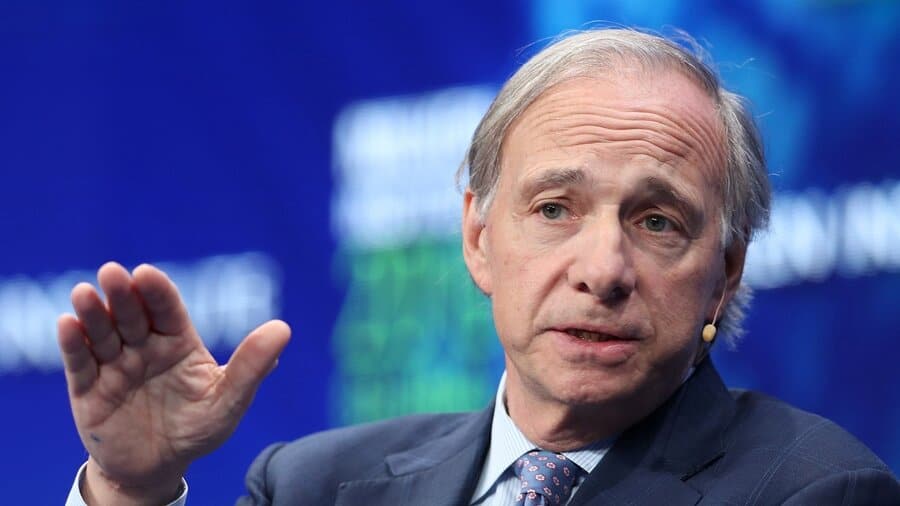






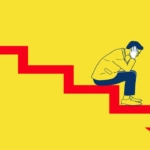





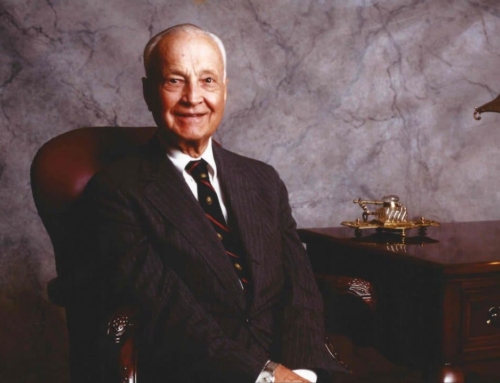
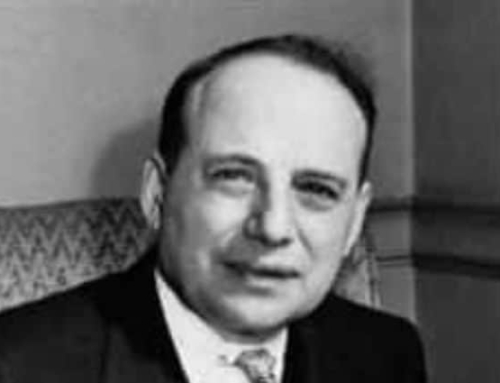
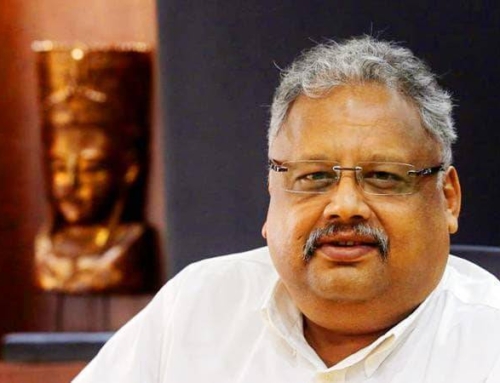
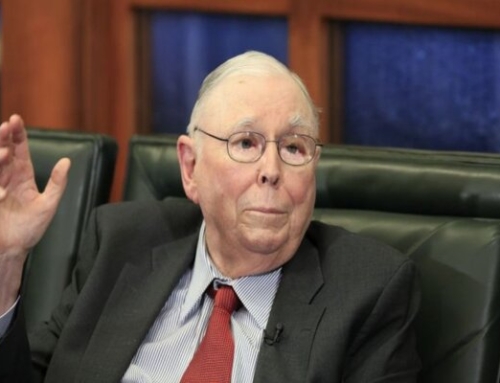
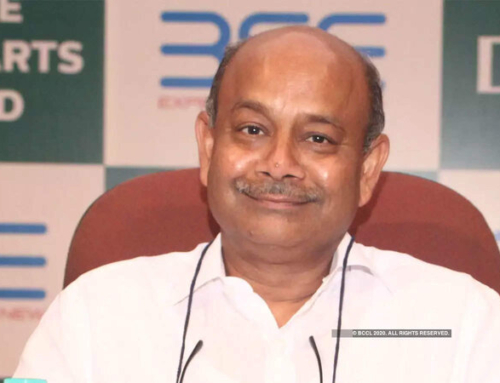

Leave A Comment